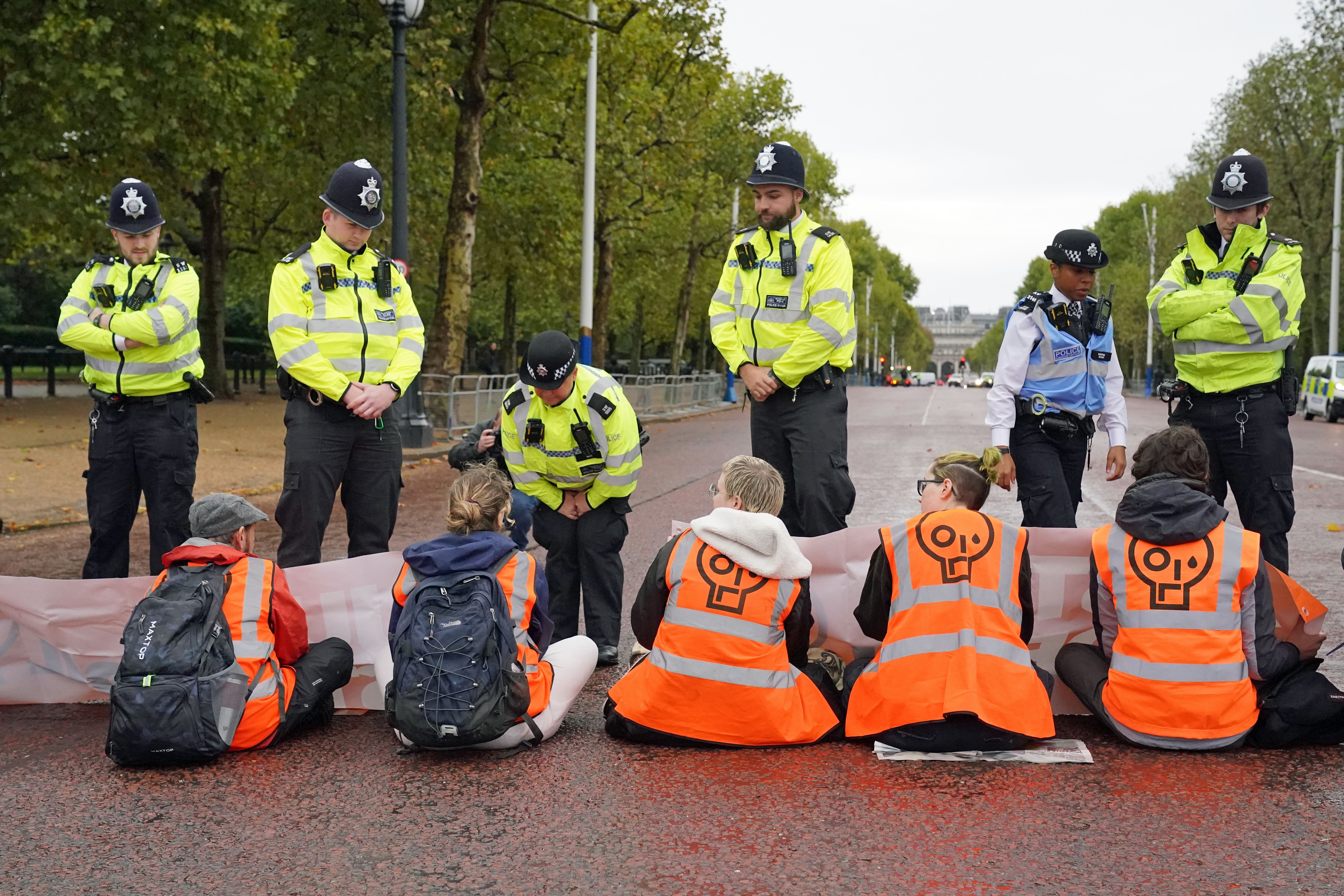Road-blocking protesters have not yet caused major disruption – police chief
Met Commissioner Sir Mark Rowley said officers have to wait until demonstrations meet a legal threshold of disruption before they can be shut down.

Your support helps us to tell the story
From reproductive rights to climate change to Big Tech, The Independent is on the ground when the story is developing. Whether it's investigating the financials of Elon Musk's pro-Trump PAC or producing our latest documentary, 'The A Word', which shines a light on the American women fighting for reproductive rights, we know how important it is to parse out the facts from the messaging.
At such a critical moment in US history, we need reporters on the ground. Your donation allows us to keep sending journalists to speak to both sides of the story.
The Independent is trusted by Americans across the entire political spectrum. And unlike many other quality news outlets, we choose not to lock Americans out of our reporting and analysis with paywalls. We believe quality journalism should be available to everyone, paid for by those who can afford it.
Your support makes all the difference.Protesters blocking main roads in central London have not yet caused major disruption despite “enormous” policing resources being taken up dealing with the demonstrations, the new head of the Metropolitan Police has said.
Commissioner Sir Mark Rowley told the London Assembly Police and Crime Committee that officers have to wait until protests by Just Stop Oil and Animal Rebellion are deemed to meet a legal threshold of causing major disruption before they can be shut down.
His officers are in touch with Transport for London, local councils and the emergency services several times per day to check the level of disruption caused.
Sir Mark said: “Over the last 11 days, all of those partners have been of a view that it doesn’t cause serious disruption.”
He went on: “As soon as we have evidence of that serious disruption either being crossed as a line, or a good prospect of it being crossed, we’ll start being more assertive with our powers.”
So far there have been 338 arrests, mainly supporters of Just Stop Oil, but also a few of Animal Rebellion.
Sir Mark said: “This has been a really difficult operation over the 11 days so far. And it annoys me how much it’s taking away from policing local communities.
“In 11 days we have put 2,156 officer days into doing this, so that’s a couple of hundred per day roughly.
“That’s an enormous amount of policing resources that aren’t tackling issues that matter to local communities, aren’t dealing with knife crime, aren’t dealing with violence against women and girls.”
On Tuesday, Home Secretary Suella Braverman said she expects police to use the “full powers” given to them by the Government after fossil fuel protesters reportedly obstructed a fire engine and an ambulance.
Ms Braverman branded the actions of demonstrators from Just Stop Oil in west London as “self-defeating” and “completely indefensible”.
Videos shared online on Tuesday show a fire engine and an ambulance on blue lights unable to get through traffic after 32 protesters – some gluing themselves to the road – blocked three routes in Knightsbridge and Brompton Road in London.
Just Stop Oil said it had paused its blockade to let a fire engine through.
The law is very clear that just blocking a road in itself isn't automatically serious disruption
Sir Mark told the committee: “The law is very clear that just blocking a road in itself isn’t automatically serious disruption and, whilst it’s committing some offences, in terms of obstruction of the highway, those aren’t prosecutable if it’s a lawful protest as long as it doesn’t exceed reasonable bounds.
“And that’s the judgments police officers have to make the whole time.
“The fact I’ve been putting 200 officers a day into policing this, I don’t welcome that, that’s not good for London’s communities, frankly. But I have to work with the legal framework.
“I would love to be able to close these down more quickly and spend less policing resources on it at the moment, and as soon as partners who have the expertise to assess the impact on the road network and the road services, as soon as they say this is heading towards crossing the line, we’ll be in there straightaway.
“But until that point, I don’t have a legal power to do that.”